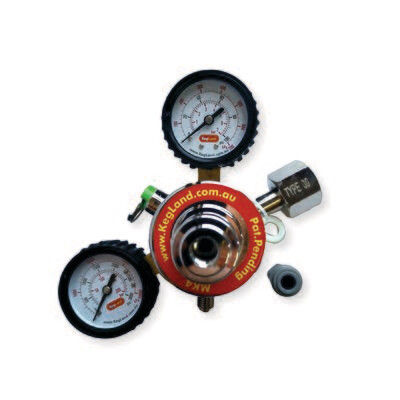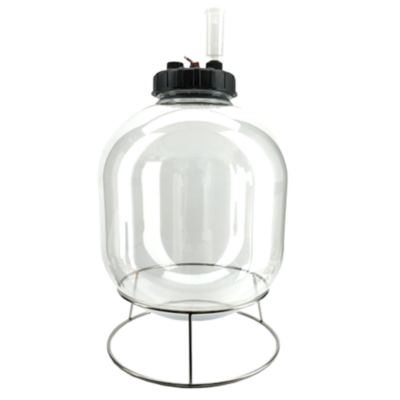


PLEASE NOTE: OUR PHYSICAL STORE IS NOW CLOSED UNTIL THE 13th JANUARY 2025.
BUT DON'T WORRY OUR ONLINE STORE WILL BE OPEN TILL THE 23rd DECEMBER
WE WILL ONLY CLOSE FROM THE 24th DEC, TILL 2nd JAN 2025.
ORDERS PLACED BETWEEN 24th - 2nd WILL ONLY BE SENT AFTER THE 2nd JANUARY 2024
FLOKI'S MEAD KIT
Mead is an alcoholic beverage created by fermenting honey with water, and often with various fruits, spices, grains, or hops. It is sometimes referred to as "honey wine" due to its primary ingredient, honey. Mead is one of the oldest known alcoholic drinks, with a history that dates back thousands of years.
Floki's Mead Kit provides the Brewer with top-quality, professional Brewing equipment and includes everything needed to start Brewing. Plus, you have the option to add a variety of accessories to enhance your setup at any time.
Floki's Mead Kit Includes:
1 x 30L Flat Bottom FermZilla PET Fermenter Complete with an Airlock, Tap and Level Indicator Strip
1 x Hydrometer for Measuring Sugar Levels Before, During and After Fermentation
1 x pH Strips to Accurately Measure the pH Level and Ensure a Good Fermentation
1 x 100g of Sodium Metabisulfite to Clean and Sterilize all Equipment
1 x Lalvin EC-1118 Yeast
1 x Oxebar 8L Keg Complete with Carbonation Caps and Filter - Once Fermentation is Complete the Mead can be Dispense into the Oxebar for Aging and Carbonation if Required.
1 x Easy to Follow Instructions
Excluding:
Honey - Simply Purchase the Honey of Choice
Optional Extras:
Picnic Dispensing Tap 2.1 - Once Carbonated, the Mead can be Quickly and Easily Served
Mini 360 Core Actuator Regulator - Uses both 16g and 20g Gas Cartridges and or a Sodastream Bottle to Gas the Oxebar Keg
Oxebar 4L Keg - Is a Smaller, Easy to Carry Keg if Needed
500ml Amber Bottles - Millside Supplies these Bottles in Packs of 24 with Lids
Upgrade to a FermZilla 30L All Rounder Fermenter - This Unit Works as both a Fermenter and Keg, allowing for Pressure Fermentation and Transfers
Upgrade the Regulator to a MK4 Regulator - Uses Large Size CO² Bottle, Reducing the Overall Cost of Gas to an Economical Level
Aromatic Hops, Seeds, Roots, and Flowers can be Incorporated to Introduce an Entirely New Dimension of Flavor to the Mead
Mead has a rich history and cultural significance in many ancient civilizations, including those of the Norse, Celts, and Greeks. It was often associated with gods and mythology and used in rituals and celebrations.
It also traces its origins to the African bush, where the elements conspired to create mead in natural fermenters formed from hollowed-out trees. This theory speaks to the fundamental human experience of discovery, experimentation, and the appreciation of nature's gifts.
Today, mead remains a versatile and ancient beverage that continues to enjoy popularity. Many craft Meaderies produce both innovative and traditional styles, celebrating its rich heritage and diverse flavours.
Ingredients:
The basic ingredients are honey, water, and yeast. Additional ingredients like fruits (to make Melomel), spices or herbs (to make Metheglin), or grains can be added for different flavour profiles.
Fermentation Process:
Mead is made by mixing honey and water and then fermenting the mixture with yeast. The yeast converts the sugars in the honey into alcohol. This process can take several weeks to several months, depending on the recipe and desired alcohol content.
Varieties:
There are numerous varieties of mead, including:
Traditional Mead: Made with just honey, water, and yeast.
Melomel: Mead with added fruit.
Metheglin: Mead with added spices or herbs.
Cyser: Mead made with apples or apple juice.
Pyment: Mead made with grapes or grape juice.
Braggot: Mead made with malted barley or other grains.
Sack Mead: A stronger, sweeter mead with a higher honey content.
Alcohol Content:
The alcohol content of mead can vary widely, typically ranging from about 5% to 20% alcohol by volume (ABV), depending on the recipe and fermentation process.
Flavour Profile:
The flavour of mead can range from very sweet to dry, depending on the amount of honey used and the fermentation time. The added fruits, spices, or grains can also significantly influence the taste.









